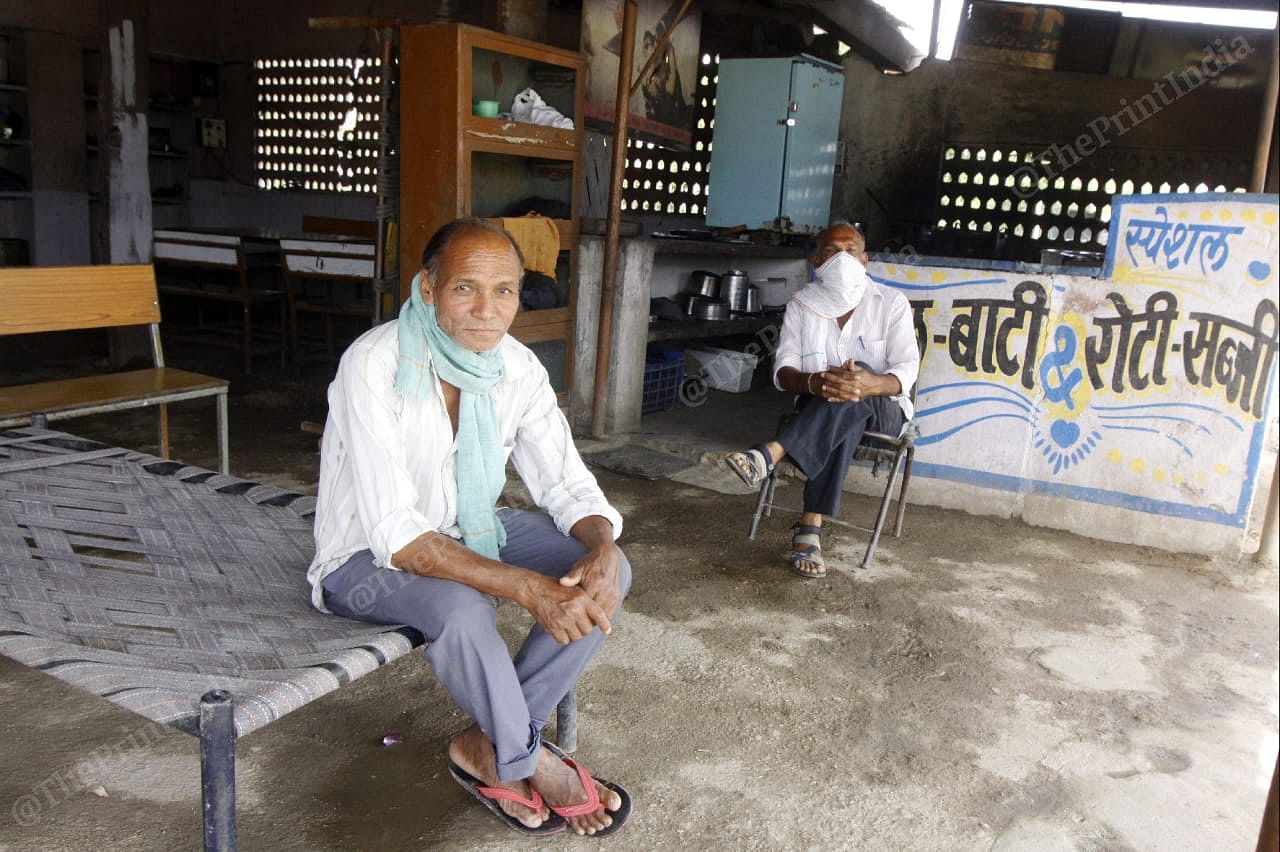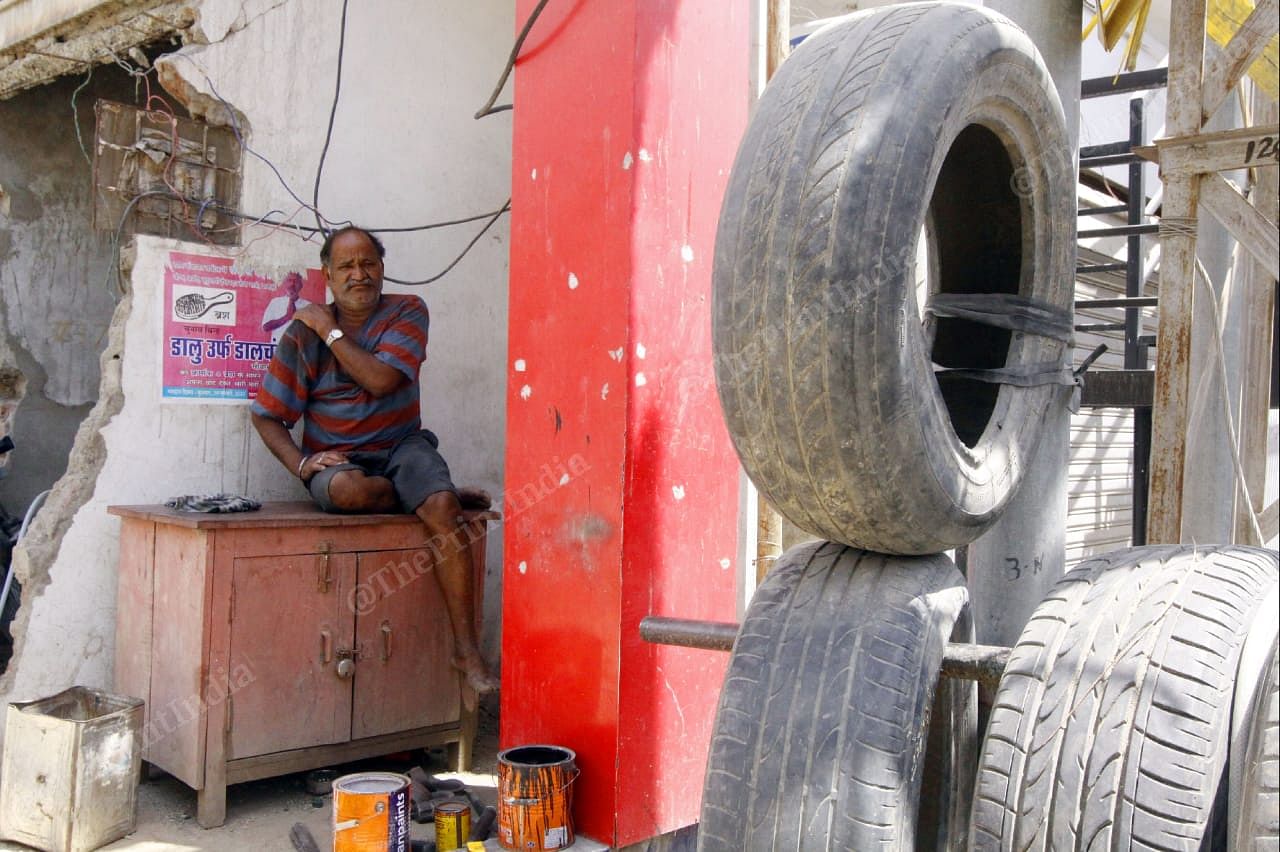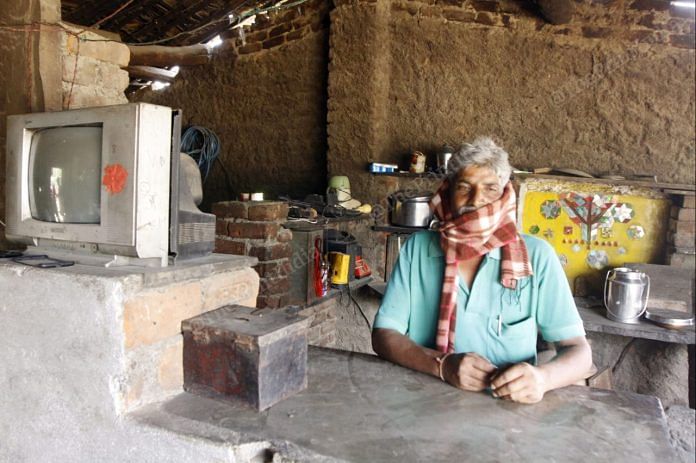Udaipur: For miles and miles on the Kota-Chittorgarh-Udaipur highway, dhabas and other roadside stores lie abandoned with their shutters down. Behind the shutters, however, are families scrambling to feed themselves given their main source of income has been abruptly cut off.
On 20 April, these shops and dhabas were allowed to reopen as part of essential and commercial services in keeping with the Narendra Modi government’s latest guidelines. However, most establishments ThePrint visited were not aware of this directive.
“No one has told us. You’re the first people to say this,” 50-year-old Khemraj Meena, who owns a dhaba on the highway, told ThePrint. “The dhaba has been shut since the lockdown was announced. We didn’t plan on opening it before 3 May.”
The 21-day nationwide lockdown announced by the Modi government on 24 March to curb the spread of coronavirus was on 14 April extended until 3 May. The first phase of the lockdown triggered reverse migration and left thousands homeless and hungry. It also brought the lives of those earning a daily income, such as highway servicemen, to a grinding halt.
To tide over the crisis, Khemraj, like many dhaba owners, is feeding his family of seven by selling the wheat he grew on the 1-bigha land he owns behind his mud-and-concrete dhaba.
“It’s only one bigha so we don’t get that much money from it,” he told ThePrint. The going rate used to be Rs 20 for one kg of wheat, but now we are forced to sell 1 kg for Rs 15 because the bargaining power is now with the store. Our cash is over. We are relying on whatever ration we bought last month, which should last another week at least.”

Also read: Who is Vinay Dubey? The self-styled migrant mascot arrested for Bandra ruckus
‘Won’t make a difference’
A few kilometres away, at Mateshri dhaba in Batawar, Udaipur district, 45-year-old Poonam Singh says he didn’t know about the 20 April directive, but even now that he does, it won’t make a difference.
“We’ll keep the dhaba shut till the lockdown comes to an end. What’s the point of keeping it open? It won’t make a difference since traffic is low. We’ll offer biscuits since that’s what we are able to get in steady supply,” he said.
His father, Guresh Singh, runs a small grocery store adjacent to the dhaba. It looked empty, save for a handful of items on the shelves. Supply and demand have been erratic since the lockdown was announced, Guresh said, adding they have managed because of a plot of land where they grow wheat.
“We have 4-5 bighas of land so we are able to get by. It’s not as comfortable as before, but we can manage. The government has promised farmers Rs 2,000, which we haven’t got yet,” said Poonam.
Dhaba owners and other highway servicemen often grow some produce on the land behind their shops as a means to earn a little extra, but it is not their primary source of income. From earning a combined income of Rs 600 a day, Poonam Singh explained that his daily income has dropped to about Rs 150 now.
That amount dwindles further when the plot of land to harvest is smaller.
Those who don’t have a plot of land at all, like Moti Lal Khatik who runs a tyre repair service on the highway, are less fortunate. Lying on a block of concrete next to his tyre store, Khatik said he had no clue that he could resume work from 20 April. “I’ll re-open the shop when the government says that I can,” he replied when informed of Modi’s 14 April announcement.
When asked how he was managing his income, he beat his head and then pointed to the ground. “I spend my time doing nothing, and I’m surviving somehow or another. I manage my meals by asking around. I have a wife and daughter at home and our rations are very little. What can I do?”

Also read: India needs more discipline, better coordination between Modi and states till 3 May
They have not received the relief package
Nine-year-old Pushkar, who would normally be at school, goes to his parent’s dhaba 50 km away from home every day to look after it. He later joined by his uncle Kishan when ThePrint team stopped by. “Someone might steal our stuff if there’s no one to look after it. So that’s why I’m here,” Pushkar explained.
Kishan said the family used to earn Rs 350 a day from running the dhaba, but, like several others, they now rely on the little money they are able to earn by selling the produce from their a small patch of land to tide over the lockdown period.
None of these dhaba owners, who are also farmers, has received the Rs 2,000 promised by the Modi government as part of its relief package announced on 26 March, after the first phase of the lockdown began.
“We haven’t received any relief package. This lockdown is worse than demonetisation because at least people were coming to our services at that time. Now no one is coming at all, and it’s been nearly a month,” Lalit Aahir, who owns Maheshwari dhaba, told ThePrint.
He added, “We’ll only open our dhaba if demand grows. There’s little point otherwise.”
Also read: Agriculture, manufacturing units will drive GDP but more relief needed, say industry bodies



